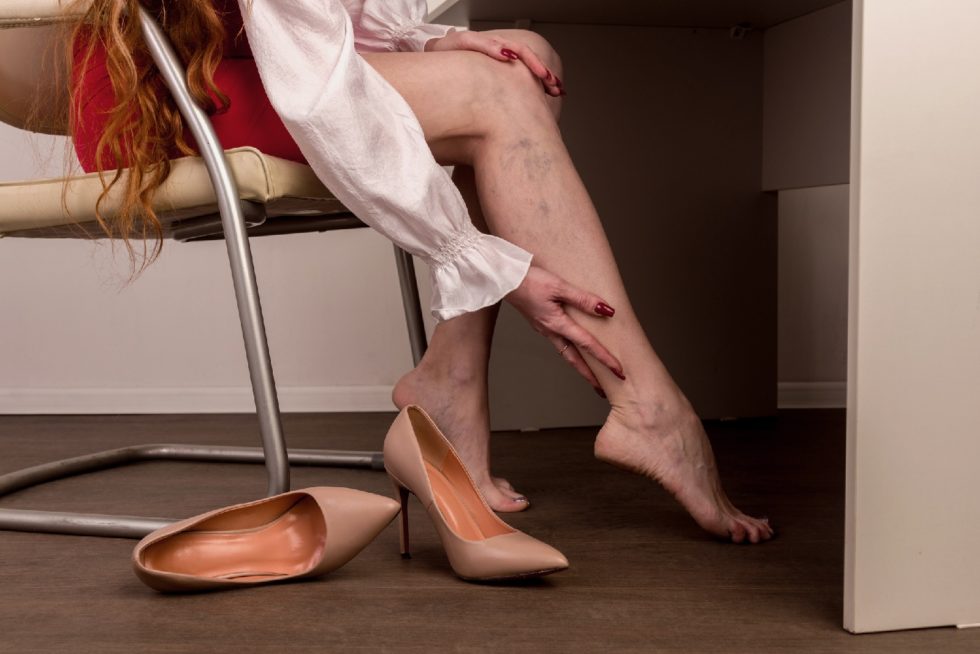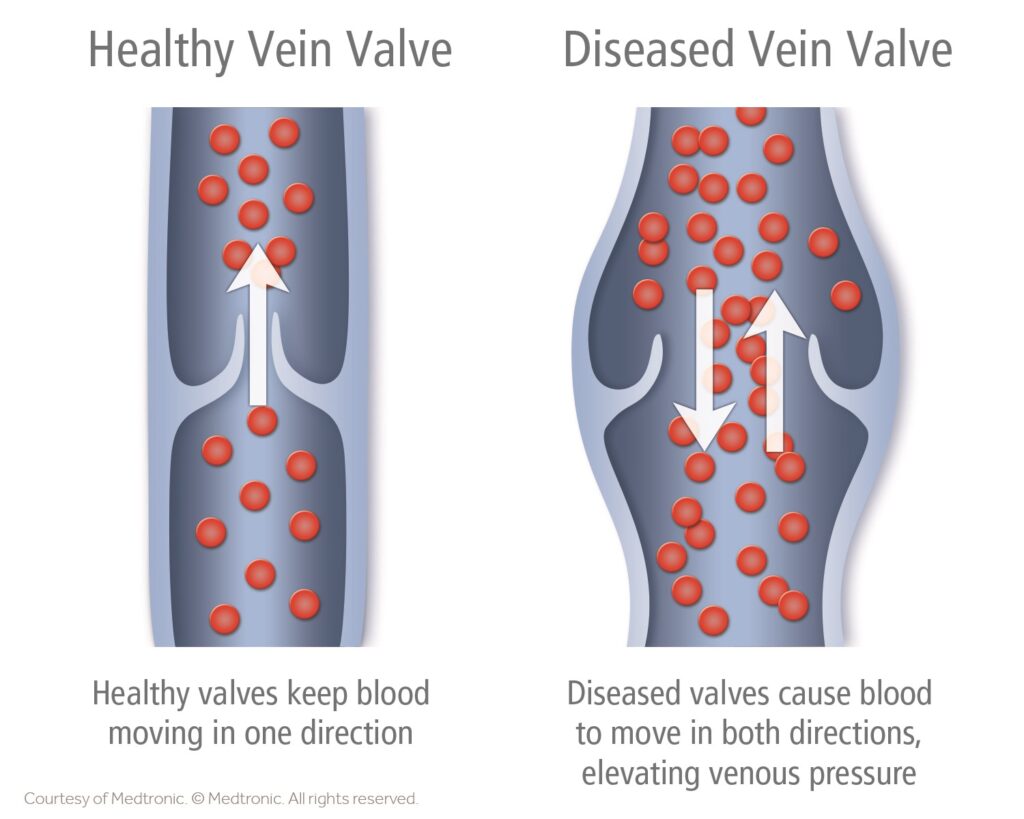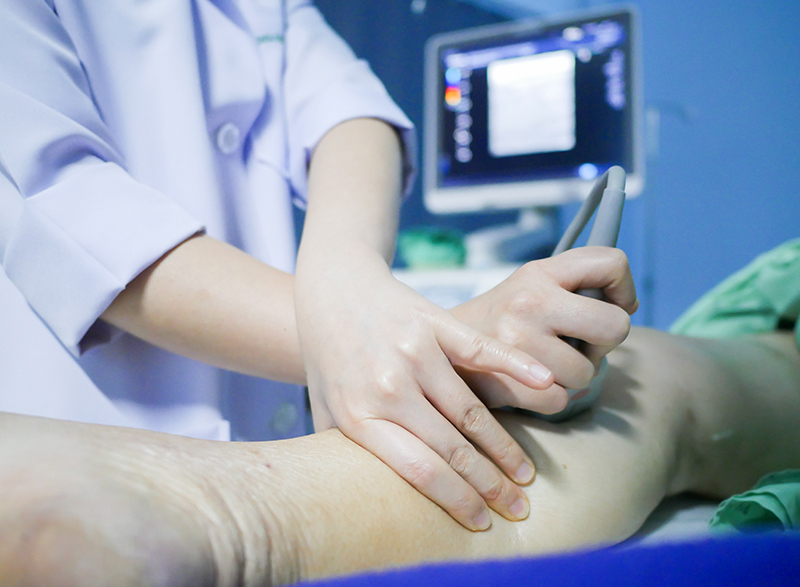Varicose Vein Screening: What to Expect
Author: StrideCare Internal Team

Vanessa* lived with unsightly spider veins and varicose veins on her legs for several years. At first, she didn’t think about doing anything about them. But over time, she’s experienced interruptions to her daily life because of issues with her legs. She started wondering how doctors determine the best treatment options. The answer is simple: a varicose vein screening. A vein screening evaluates your legs to determine what type of problems exist, if there are any underlying causes such as venous insufficiency, and how to resolve them.
It’s important to note that many of the roughly 25% of men and women in the United States who have spider veins and varicose veins live without major health concerns at the moment. But a varicose vein screening can still be beneficial and has been a game-changer for those experiencing any of the following symptoms:
- Feelings of leg achiness
- Heaviness or fullness in your legs
- Burning, throbbing, itchy legs
- Swelling in legs (edema)
- Leg skin discoloration
- Cold or numb legs
- Leg muscle cramps
- Leg discomfort when sitting or standing
- Skin ulcers or leg sores
Why Is Varicose Vein Screening Important?
Spider veins and varicose veins can develop more as we age. This is because valves in our veins weaken and don’t work like they did when we were younger. They slow down, fill up with blood, and as a result, cause our veins to enlarge or swell due to fluid buildup. When this happens, unsightly, thin, thread-like red or blue lines called spider veins appear along the skin. Eventually, a person can develop bulging and twisted veins on their legs and feet.

These are called varicose veins, and if you don’t talk to your doctor, the appearance and symptoms may worsen over time. This can lead to more serious complications, including:
- Chronic Venous Insufficiency — This is when blood pressure builds up in the lower legs. It can cause painful symptoms ranging from swelling and a heavy, full feeling in the legs to drastic skin changes that could lead to open sores and ulcers on the legs, feet, or ankles.
- Skin and foot ulcers — Lack of proper blood circulation limits oxygen and weakens our skin. This can cause very painful leg skin ulcers to form. Many of these painful sores take a considerable amount of time to heal or may not heal.
- Deep Vein Thrombosis — DVT is a serious condition in which a blood clot occurs deep within one of the veins in your body. While we typically see deep vein thrombosis in the legs, these harmful blood clots can be found anywhere in the body under the right conditions. We encourage our patients experiencing swelling in the feet, swelling in the legs, foot pain, leg pain, and burning sensations in the feet to get diagnostic testing.
- Restless Leg Syndrome — Several studies indicate that as many as 22% of those with RLS (pins and needles sensation, itchiness, aching, etc.) have venous insufficiency. While restless legs occur with venous insufficiency, the RLS can be improved by treating the varicose veins themselves.
What to Expect from Varicose Vein Screening
Varicose vein screening is one of the most common, quick, and efficient diagnostic tests our specialists use to determine your vein health. There is no cutting, anesthesia, or scarring. It’s 100% non-invasive and non-surgical. Instead, we use ultrasound technology to get a full view of the circulatory system and its structures beneath the skin.
A varicose vein screening typically consists of:
- Discussing your medical history with your doctor, including current medications you might be taking, symptoms, lifestyle, and anything else that might increase your risk of vein disease.
- An external manual exam where your doctor will examine any spider and varicose veins you have.
- A simple scan called a diagnostic venous ultrasound is used to identify vein function and potential blockages.
- Patients can sit back during the screening and relax.
- After the diagnostic test, doctors will discuss results and further treatment, if necessary.
- For your varicose vein screening, you may be asked to wear comfortable and loose-fitting clothing that is easy to remove. Or you may be asked to change into disposable short pants that are temporary and worn by only you.
Before the screening begins, your provider will apply a small amount of gel to the skin to better help the ultrasound glide over your diagnostic area. At times during the test, the glider will be pressed against your leg to cause the veins to squeeze closed momentarily while obtaining ultrasound imaging of the vein. This is not harmful to the vein, but it is the preferred method of checking for a blood clot.

The starting and ending point of veins are evaluated, and the flow checked for reflux. Reflux in the veins is when blood is going in the wrong direction (towards the feet) when it should be flowing up towards the heart. The entire ultrasound process typically takes 45-60 minutes to complete, after which time you’ll be able to return to your normal daily activities, including work.
The bottom line is that interventional radiologists like the team here at StrideCare understand that relief from itchy spider veins and painful varicose veins is a primary concern for many patients. Varicose vein screening is the best way to determine the specifics of your unique situation and craft a treatment plan that works for you.
Schedule Your Varicose Vein Screening with StrideCare
If you are experiencing achy leg pain and other vein symptoms, you’ve found the right place. The vascular physicians at StrideCare are board certified diagnostic radiologists with additional fellowship training in vascular and interventional radiology. They are the top South Texas vein doctors for treating leg pain, vein disease, varicose veins, and leg sores due to vein problems.
StrideCare performs leading-edge procedures to treat vein disease such as varicose veins, as well as spider vein treatment, chronic venous insufficiency (CVI), restless leg syndrome, chronic pelvic pain, pelvic congestion syndrome, May-Thurner Syndrome and more—all the while providing compassionate patient care.
If your veins need treatment, or you have questions on how to avoid the onset of varicose veins and would like a varicose vein screening, the experts at StrideCare will recommend an individualized plan to help you get the best results. Request an appointment for a vein disease evaluation to discuss your options.
Prior to starting any new treatment or questions regarding a medical condition, always seek the advice of your doctor or other qualified health provider. This information is not a substitute for professional medical advice.
StrideCare serves the South Texas area including Houston, San Antonio, Austin, Round Rock, Bastrop, Brushy Creek, Cedar Park, Converse, Georgetown, Hutto, Kyle, Leander, Marble Falls, New Braunfels, Pasadena, Pearland, Pflugerville, San Marcos, Schertz, Houston, Sugar Land, Katy, Webster, Bay City, Clear Lake, Lake Jackson, The Woodlands, Universal City, Spring, Kingwood, Stafford, Conroe, Texas City, Cypress, League City, Bellaire, and more.
*Patient stories are true. Names and/or photos may be changed to protect patient confidentiality.


